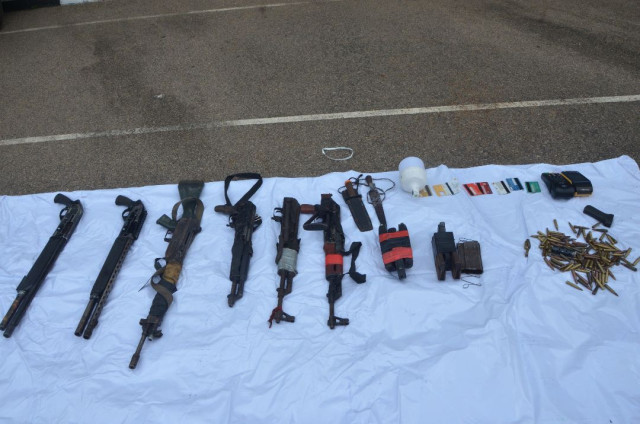The National Centre for the Control of Small Arms and Light Weapons has disclosed that it will destroy no fewer than 30,132 recovered, decommissioned, unserviceable, and illicit arms and ammunition in the country.
A breakdown of the figure shows that 3,383 are arms, while 26,749 are various calibres of ammunition, some of which were recovered from arms-bearing agencies of the government.
The agency made this known at a workshop in Abuja which was centered on gender mainstreaming in preventing the proliferation of small arms and light weapons in Nigeria and West Africa.
The National Coordinator of the NCCSALW, DIG Johnson Kokumo (retd.), said the weapons, which come from the Nigerian Army, police, and other sources, would be destroyed by the end of September.
He said, “In addition to the above, the National Centre has retrieved a total of 3,383 decommissioned, unserviceable, obsolete, and illicit small arms and light weapons and 26,749 various calibres of ammunition from the following arms-bearing agencies of government: the Defence Headquarters, Nigerian Army, Nigerian Navy, Nigerian Air Force, and the Nigeria Police Force.
“Others include the Defence Intelligence Agency, the National Drug Law Enforcement Agency, the Nigerian Security and Civil Defence Corps, and the Nigeria Customs Service, amongst others.
“Later in this quarter, the NCCSALW will be conducting an arms destruction exercise, which is a critical step in ensuring that recovered arms are permanently removed from circulation.”
Kokumo said, “The control of small arms and light weapons proliferation is not only a national concern but also a matter of international importance.
“The illegal flow of small arms and light weapons has devastating consequences, fuelling violence, instability, and insecurity in various parts of the world. As we all know, the most traumatic effects of these crises usually befall women and children.”
Kokumo also called for the involvement of women in disarmament and security policies.
He said, “Gender mainstreaming in Small Arms and Light Weapons control is not only a moral imperative but also a strategic move, as the grave impact of armed conflict on women and children highlights the need for a gender-sensitive approach to disarmament and security policies.”
Also, the National Security Adviser, Nuhu Ribadu, represented by the Director of External Affairs, ONSA, Ibrahim Babani, at the workshop said President Bola Tinubu’s assent to the bill establishing the National Centre for the Control of Small Arms and Light Weapons was a major milestone in the government’s commitment to curbing the proliferation of illegal arms.




















